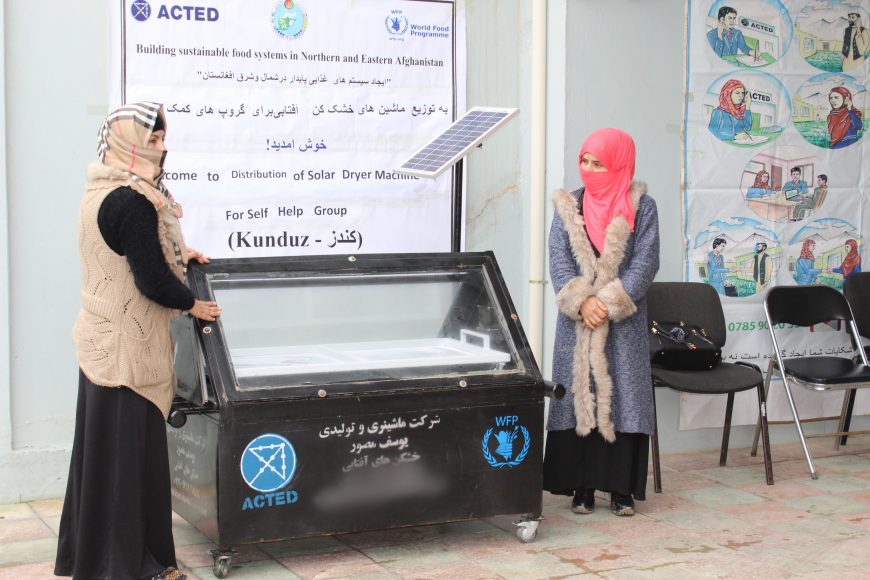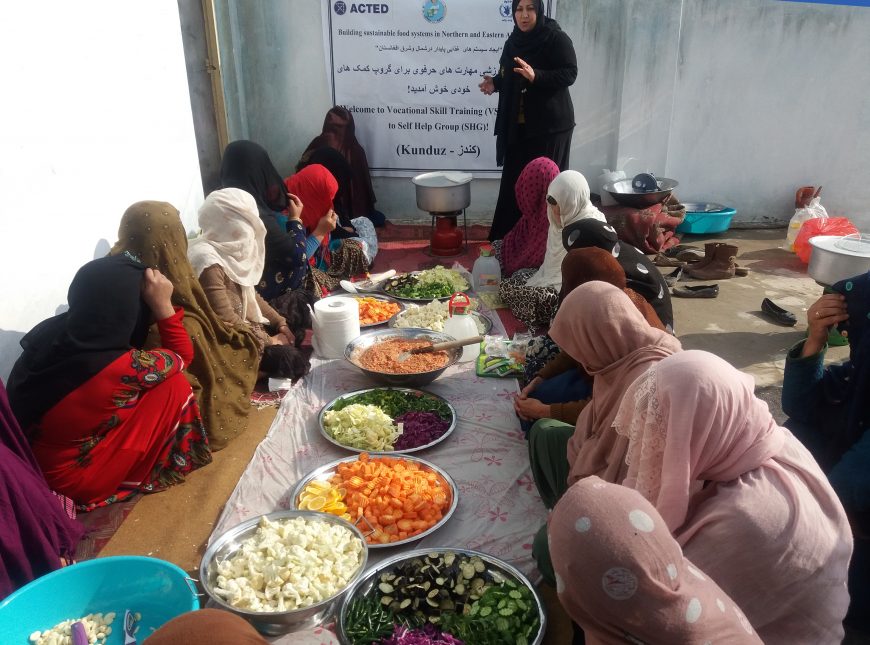In Afghanistan, three out of four people’s livelihoods are reliant upon agriculture, and female are well represented in the sector. Such a heavy reliance on agriculture makes the national economy extremely susceptible to weather events: recent droughts have had a massive impact across 22 governorates. As crops failed and livestock starved, over 290,000 people were forced into displacement and food insecurity increased. ACTED is active in five provinces, working with women involved in agriculture to boost productivity and encourage a measure of financial independence, allowing them more agency in their lives and heightened respect in the family and community.
Malalai, 23, lives in Mula Sardar village in a rural area of Kunduz province. Her family, which numbers 14 people, struggles to cover its expenses, as only one member of the family has a job. Malalai’s father works as a guard, however his salary his over-stretched, given the size of the family and the need to pay expenses for sending the children to school.
Malalai has long wished to support her family. Her participation in ACTED’s project finally made it possible.

Training sessions designed to draw more women into the rural workforce
In rural areas of Afghanistan, access to crucial literacy and work skills trainings is very limited, presenting a great hurdle for women wishing to engage in the workforce. To respond to this need, ACTED targeted over 1,900 women in 88 Self Help Groups (SHGs) for a series of vocational skills trainings.
A Self Help Group is a committee, usually composed of 10-20 local women (or men in some cases), who come together to save regular small sums of money, mutually agreeing to contribute to a common fund and to meet their emergency needs on the basis of mutual help. The group usually pools its resources to help sustain activities. Groups often provide a small income to members and use a loans mechanism to expand/develop the group’s chosen trade.
In the provinces of Kunduz, Samangan, Kunar, Laghman and Nangarhar, ACTED delivered six-month trainings which enabled participants to acquire new skills in food processing (jam-making, pickle-making and others), while also providing solar dryers to the SHGS to allow them to dry fruits and vegetables. Participants also learned the importance of proper packaging as both a means to ensure food quality and hygiene, and to enable them to sell their products at market.
We have learned a lot thanks to the training. I am now looking forward to selling my products. I really hope all the women in my village can one day benefit from this training.
Alongside trainings on the practicalities of food conservation and processing, ACTED also made efforts to ensure the SHG members left the training with a higher level of literacy than they had before, and also provided sessions on business and management to help professionalize the day-to-day running of the SHG.
Most of the women were illiterate and didn’t understand how to produce homemade products and how to do the marketing of their products. They really appreciated ACTED's efforts and many expressed the desire that ACTED would continue its support for such activities.
